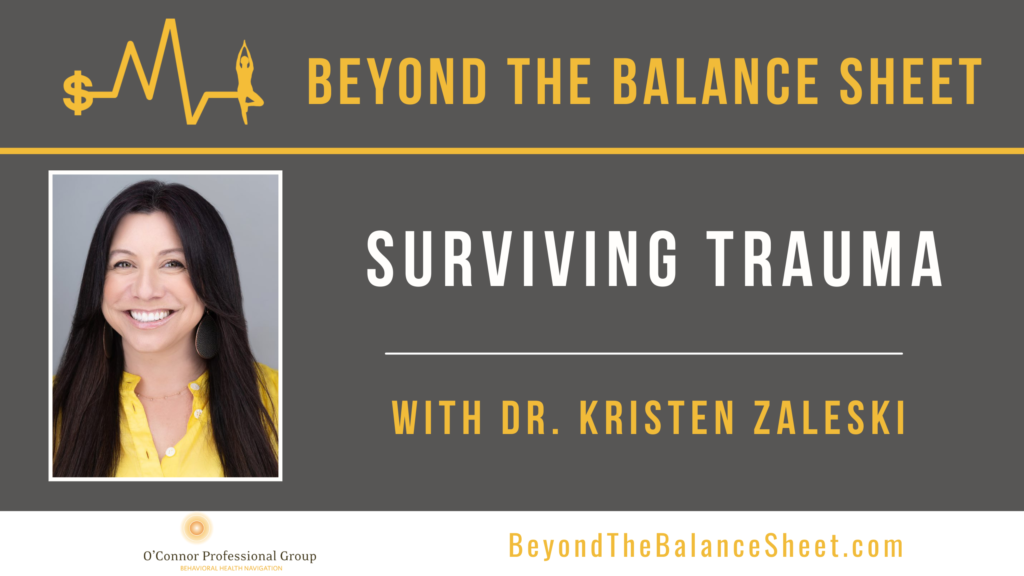The Collective’s Clinical Director and Psychotherapist, Dr. Kristen Zaleski, recently connected with Beyond THE BALANCE SHEET podcast to speak about surviving trauma and the impact trauma has on its victims. She breaks down the different levels of trauma and explains that trauma consists of moments that happen during a high-stress state. Dr. Zaleski discusses how trauma is different for each individual and describes the signs parents should look for in their own children.
Click in below to learn more about how trauma affects individuals and the support people need to work through the trauma they have experienced.
IN THIS EPISODE:
[00:55] Dr. Kristen Zaleski’s background. [1:52] Is there such a thing as generational trauma, and how does someone break the cycle? [4:00] How do professionals find a way to provide help but still manage their own lives? [6:41] Are there differing capacities in the way people handle trauma? [8:58] We have exposure on a daily basis through social media, the news, etc. Are there different levels of trauma? [13:18] What should parents look for if their children have experienced trauma? [18:06] How Dr. Kristen Zaleki sees the connection between those who have experienced trauma and those who are affluent. [22:38] What do we think about the long term impact of those who were sexually assaulted by those in power?
KEY TAKEAWAYS:
The capacity to handle trauma depends on how you were raised as a child and how your self-care and survival strategies are when it comes to stress. Stress is an important and necessary part of life. The important thing is being able to find a way to regulate the stress and find a way back to homeostasis. It’s important for parents and caregivers to allow their children to experience stress, but also educate them on healthy ways to cope. There is a lot of blame and discounting of trauma among victims. People need support to shift the narrative from it being their fault to it being a situation that happened. They need help to work through the feelings of stress that come along with trauma.
DO YOU HAVE A QUESTION?
Send our team a message or call 888.717.9355


